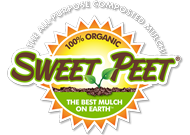City Mulch: Is It Safe?
Many cities offer residents free mulch, and using this mulch could yield significant cost savings.
But does free mulch mean it’s good mulch?
That’s the question!
In many cases, city mulch may contain hidden surprises that are bad for your garden.
Here’s what you need to know about using city mulch.
Where’s it from? Cities often use trees that have been chipped up and reduced to mulch. The mulch may also contain grass clippings and leaves from around town, which may contain fertilizers and chemicals.
What’s in it? If a tree is dying or sick, the city will take the tree down and toss it in their compost pile, reducing it to mulch. A diseased tree carries organisms that could harm your garden. Toxic fertilizers and chemicals will seep into your soil, and destroy its delicate balance.
What could happen? If you take advantage of free city mulch and use it in your gardens, your plants and vegetables may very well end up with these same diseases and be full of chemicals. In some cases, the organisms in these trees can survive for a year or more. So it doesn’t matter how long the chips have laid dormant: They still carry the disease. Eventually, your plants will die. That’s not a great investment considering how much money and time you put into your landscaping and gardening.
What should you do instead? Use a safe, organic mulch that will nurture your plants with healthy, life-generating stuff. An organic mulch like Sweet Peet is safe to use in gardens and won’t kill off your plants – or put harmful organisms and chemicals into your soil, off which your plants will feed.
If you do decide to chance it with city mulch, you should know what kind of composting process the city uses to ensure that weed seeds are killed off. And by all means, be wary of using the mulch in your edible gardens.
For more information about Sweet Peet organic mulch, contact your local garden guru for advice!


